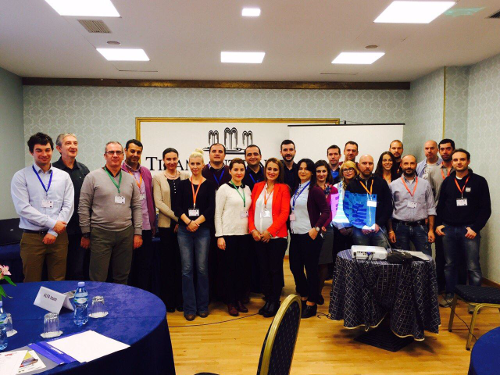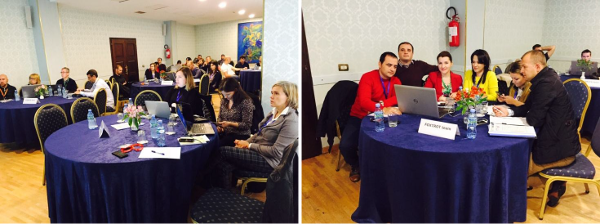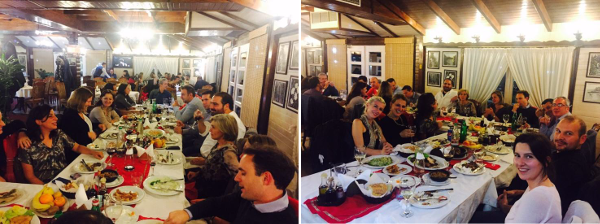The MyDewetra training school has been held in Tirana on November 8, 9 and 10 at the Tirana International Hotel.
The training is composed by two separated modules, the first module is dedicated to end-users while the second module is targeted to ICT experts. Attendees have participated at one module or both modules depending on their interest, experience and skills. The training encompasses both theoretical and operational/practical sessions on the different functionalities of the platform and the forecasting and observations systems available in MyDewetra.


The aim of this formation course is to provide training on MyDewetra Portal functions and applications, tailored for the personnel of each institution involved in the CapRadNet project, either partners or associates, and also to other institutions that are not member of CapRadNet but are located in the Adriatic eligible region. The training has been designed for both end user (hydro-meteorological experts, researchers) and ICT experts and special attention will be paid to support long-term sustainability of the platform.
MyDewetra platform is a real-time integrated system for hydro-meteorological and marine environmental monitoring and forecasting created by CIMA foundation, on behalf of the Italian Civil Protection Department. Since 2012, Dewetra platform is promoted by the Commission of Hydrology of the World Meteorological Organization as a systems for improving flood forecasting and warning.

Module for end users (8 and 9 of November): this module is dedicated to end-user of MyDewetra platform who are involved in flood risk management, landslide risk management and marine environmental monitoring. The module will focus on both the presentation of the newly-released MyDewetra Portal and the observational, forecasts and static data already available on the Dewetra 2.0 and Seawetra applications. The module will also contain a session with role-playing game, i.e., an exercise to learn the real-time operational usage of the Dewetra 2.0 functionalities and capabilities with a special focus on the latest implementations of the platform in terms of:
- real time data, e.g., weather and marine observations, hydrological, meteorological and meteo-marine forecast models, etc.
- static information, e.g. slowly-varying layers such as infrastructures, elements at risk, vegetation cover, etc.
- new features, e.g., the risk scenario-design tool, the data export applications etc.
Module for ICT experts (10 November): the module is dedicated to ICT experts and will address: system design and architecture, web-gis, web services, upload of new data to Dewetra and the general maintenance of the system. ICT experts should have experience with Ubuntu, Apache/Tomcat, PostGre and GIS systems. A practical session of the course has been devoted to publishing both a static layer and a time-varying layer on the MyDewetra using the GeoServer suite and the Dewetra Layer Settings tool. A final exercise provided the trainees a chance to test what they have learnt during the previous sessions.

Albanian TV news about the training school
See more details in the training school minutes.

